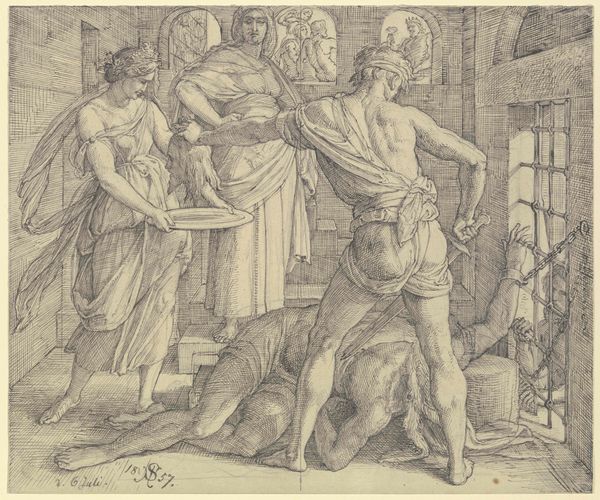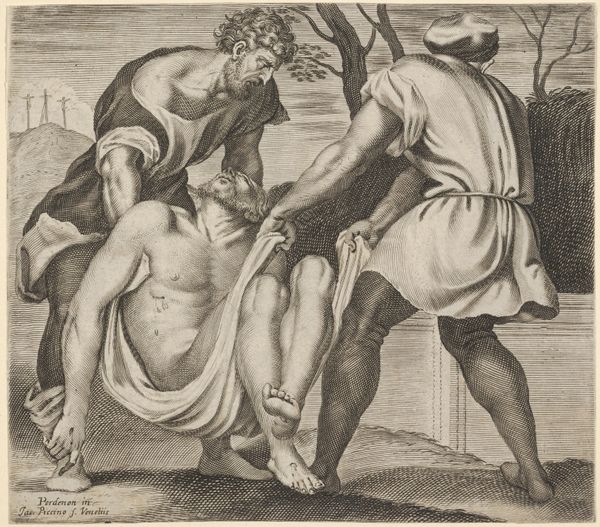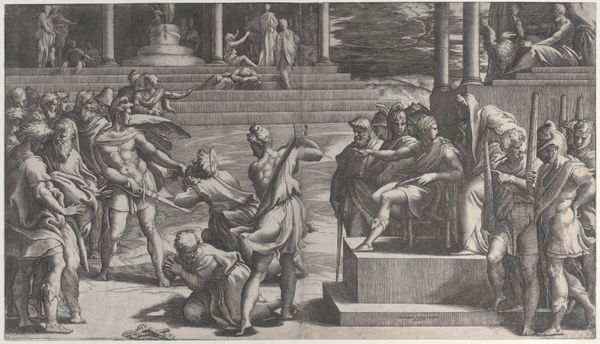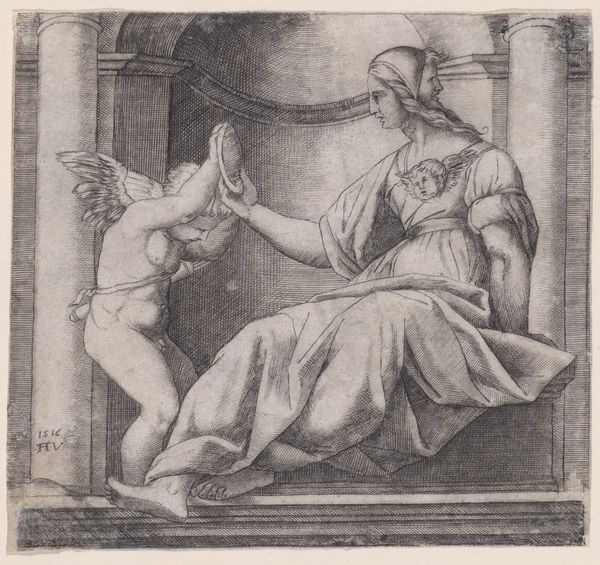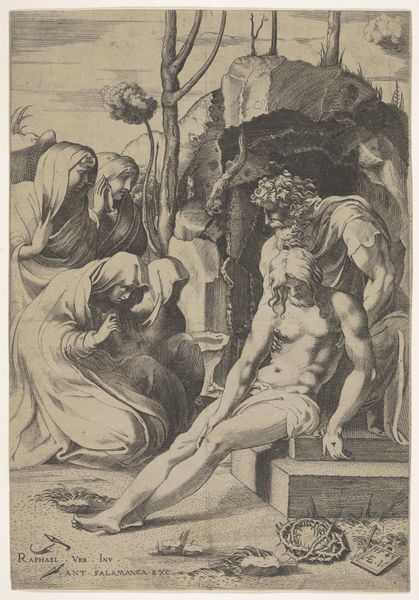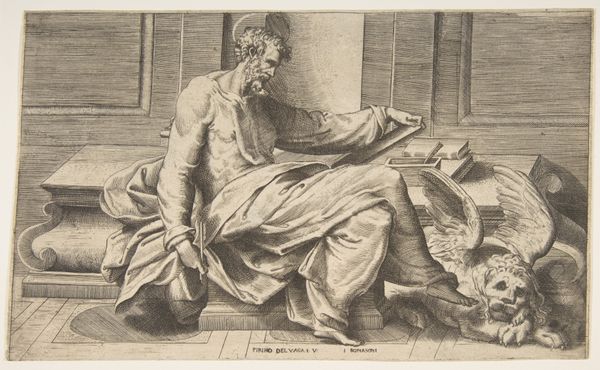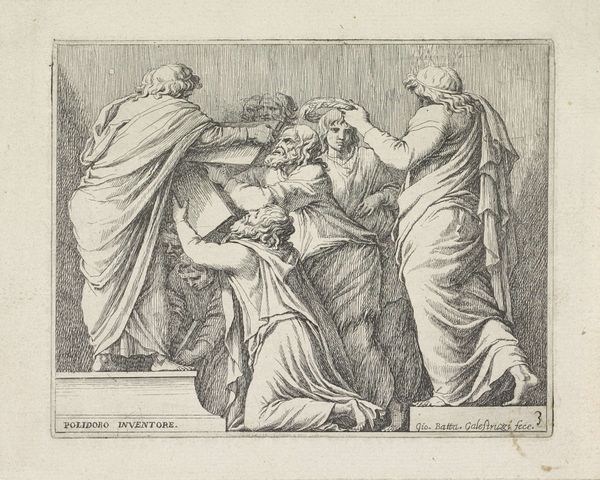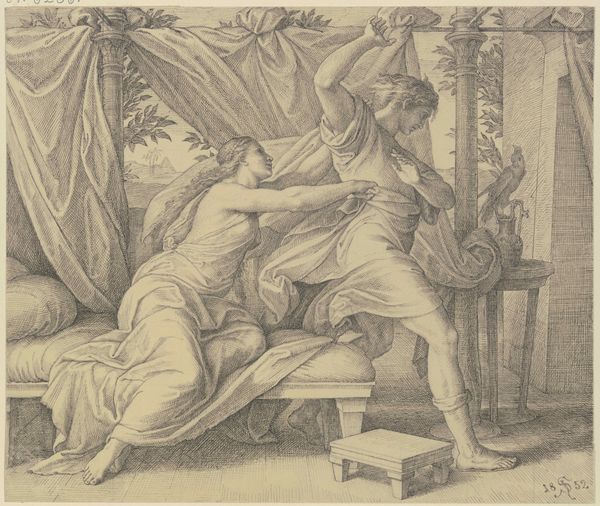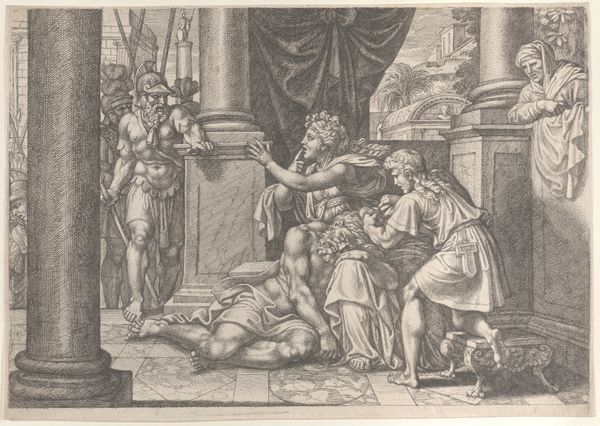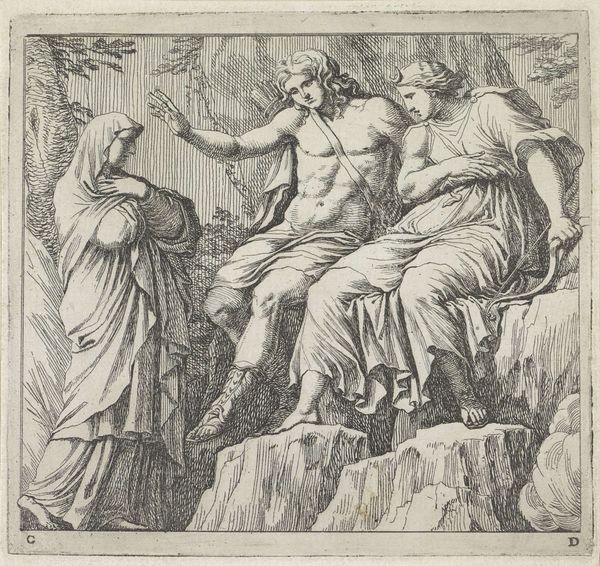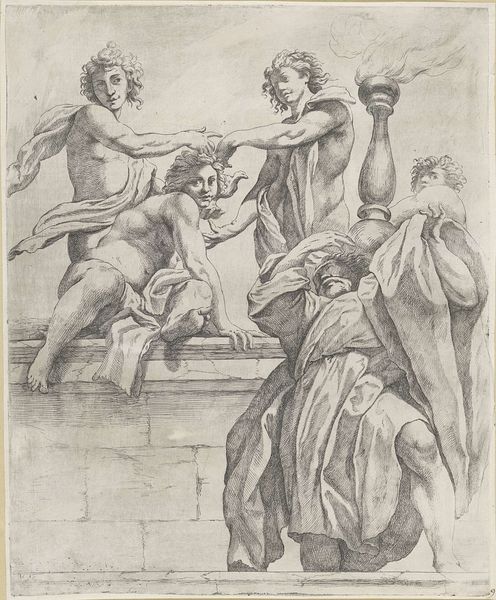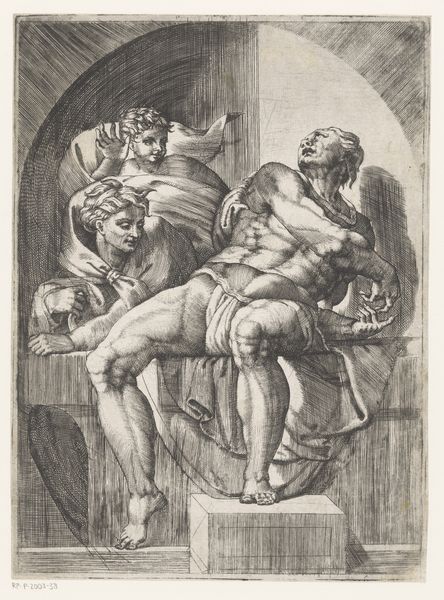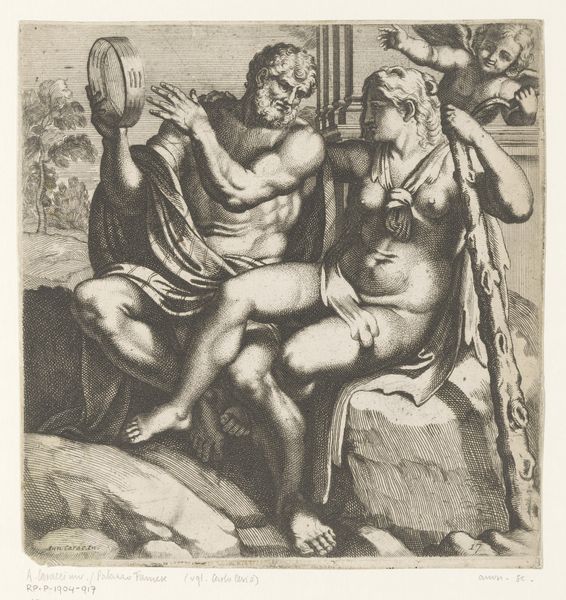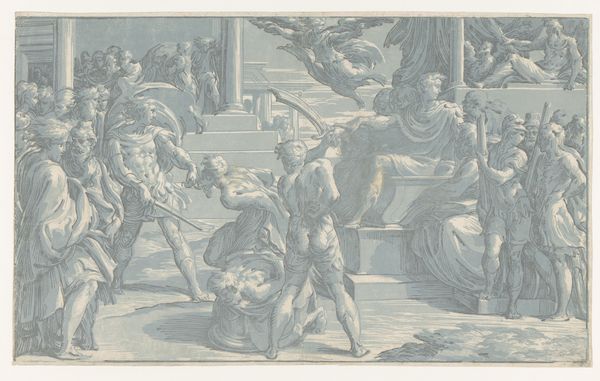
The Spies Escape, from "Dalziels' Bible Gallery" 1865 - 1881
0:00
0:00
drawing, print, engraving
#
drawing
#
narrative-art
# print
#
figuration
#
portrait drawing
#
history-painting
#
engraving
Dimensions: Image: 6 5/8 in. × 7 in. (16.8 × 17.8 cm) India sheet: 8 9/16 × 8 15/16 in. (21.8 × 22.7 cm) Mount: 16 7/16 in. × 12 15/16 in. (41.8 × 32.8 cm)
Copyright: Public Domain
This is Frederic Leighton's “The Spies Escape, from Dalziels' Bible Gallery,” a wood engraving, made sometime in the mid-19th century. As a print, this work is all about production. Wood engraving involves using specialized tools to carve an image into a block of wood. The fine lines you see were painstakingly removed, allowing the remaining surface to hold ink and transfer the design to paper. The materiality of the print—its sharp contrast, the precision of the lines—shapes our perception of the biblical scene. The story it depicts gains a certain drama through the graphic medium, which captures the tension and urgency of the spies' escape. Consider the labor involved. Not only did Leighton design the image, but skilled artisans at Dalziels' had to translate it into the woodblock, a process demanding technical expertise and patience. This division of labor reflects the industrializing art world of the 19th century, where reproductive technologies made art more accessible, but also transformed the nature of artistic production itself. By appreciating the making, we understand the cultural forces at play.
Comments
No comments
Be the first to comment and join the conversation on the ultimate creative platform.
